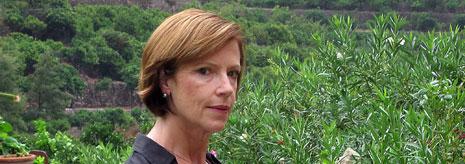Emmy Award-winning BBC journalist Sue Lloyd-Roberts has aggressive leukaemia and urgently needs a stem cell donor to save her life - can you help?
Running a hotel in the Spanish mountains and making BBC films in Vietnam, Ireland, Africa and Qatar may not be everyone’s idea of retirement, but for award-winning journalist Sue Lloyd-Roberts CBE, it was a ‘fairly quiet year’.
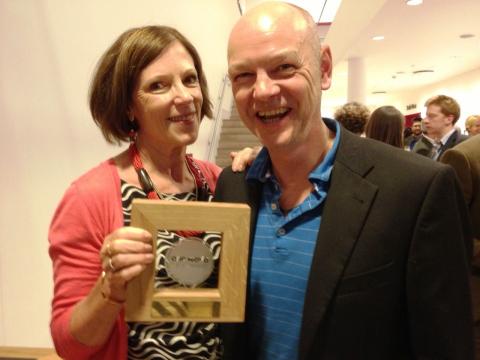
Sue Lloyd Roberts winning an award
Everything seemed normal until one busier than usual weekend at the hotel in January this year.
“I was unloading the dishwasher and, out of nowhere, collapsed on the tiles,” said Sue, 62, from Islington. “The hotel was full and I had some urgent BBC matters at home, so I figured I was just tired and didn’t need to go see anyone. As a doctor’s daughter, I was taught by my father not to bother doctors unless absolutely necessary!”
But Sue’s husband, BBC producer Nick Guthrie, insisted she go to the local doctor in Palma. Tests revealed she had myelodysplastic syndrome, or MDS, a blood disorder which, in Sue’s case, has developed into leukaemia.
“I couldn’t help but feel, ‘Why me?’ I’ve always been fanatical about my health, I love climbing mountains and I eat well. It didn’t make sense. But my doctor said being fit would mean the treatment was more likely to work, so that at least was a comfort.”
Sue's treatment journey
Sue decided to have treatment back in the UK, at University College Hospital. She had to cancel two films she was due to make this year and, with Nick by her side, Sue flew back to London, where her children George, 34, and Sarah, 30, also live.
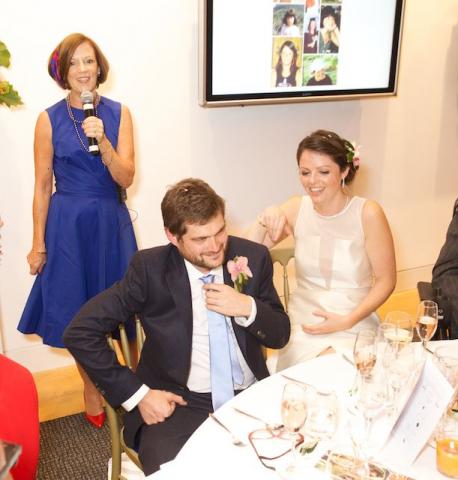
Sue Lloyd Roberts at her daughter's wedding
“I was told I had an aggressive form of the cancer and so the only option was a bone marrow transplant,” said Sue. “My brother and sister were tested and were not a match, so I need to find a stranger who is a match.”
The last few months have been a rollercoaster of emotions as a potential donor was found for Sue, only to fall through at the eleventh hour. Sue is currently in remission but is likely to relapse again unless another donor is found imminently.
“The Anthony Nolan charity scoured the international registers and found three potential donors for me. Just three people, out of the 25 million people on the worldwide stem cell registers. But one of these people was pregnant and the other was unavailable until July, which was felt at that time to be too late. Thankfully, the last one looked promising; a 9/10 match, who also had the same blood type as me.”
The potential donor, who lived overseas, confirmed their availability and, in May, Sue wrote ‘I love whoever it is already’, in an elated blog post. (Read Sue's blog at https://sllrblog.wordpress.com/)
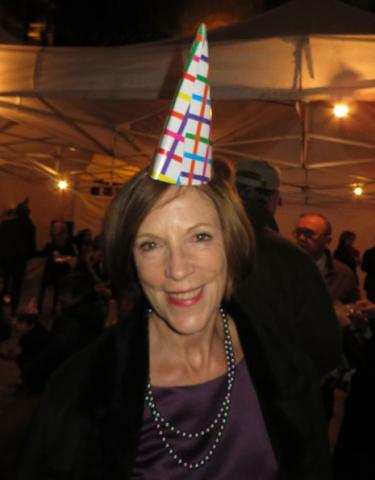
Sue on New Year's Eve
'What bliss to be told that I must eat cake!'
As her transplant approached, Sue continued blogging about her cancer journey and remained active, organising her husband’s 70th birthday celebrations, attending her brother’s wedding and going to plays and operas. She was even told she ‘must eat cake’ in order to gain weight ahead of her transplant.
She wrote on her blog: “The hospital have told me to put on at least 3 kilos before I go back in so as to give the body extra fortifications for what is about to hit it. So, extravagant lunches over the last three days of wedding celebrations have been just what the doctor ordered.
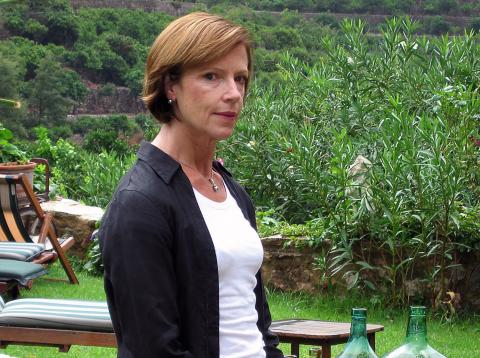
“Have been stuffing myself with canapés, speckled hen stuffed with mascarpone, fillet of beef and endless cakes. My brother’s wedding cake was made of coconut, lemongrass and decorated with edible flowers. Yummy! At lunch at my sister Rosanna’s today, I ate apricot and almond cake and lemon cheesecake. What bliss to be told that I must eat cake!
“So, feeling plump and plucky, I am back to hospital on Wednesday for extra fierce chemo and then the transplant on June 4th. Wish me luck!”
'Back to the drawing board'
But just two days after writing this post, to her ‘astonishment and huge disappointment’, Sue received the news that her donor was no longer able to donate.
“I heard from the hospital this morning that the donor has not passed his medical and so the stem cell transplant will not take place as scheduled. It could be that he had an infection, was found to be HIV positive or anything at all. I shall never know, but I wish him well,” she wrote in May.
Now, she says, it is ‘back to the drawing board’.
“I’m in limbo now while we wait to see if there is another donor who is available and able to donate. I have modern medicine on my side so I am trying to remain optimistic. A new donor will be found but this horrible time is going to go on longer than I expected.”
The BBC are recruiting potential lifesavers amongst their staff
Blood cancer charity Anthony Nolan is now working closely with Sue’s medical team to find an alternative donor – and meanwhile, Sue has rallied support from her BBC colleagues.
A donor recruitment event will be held at BBC’s New Broadcasting House next week, where BBC staff will join the Anthony Nolan register using a simple saliva test. And everyone else aged 16–30 is being urged to join the register online at www.anthonynolan.org.
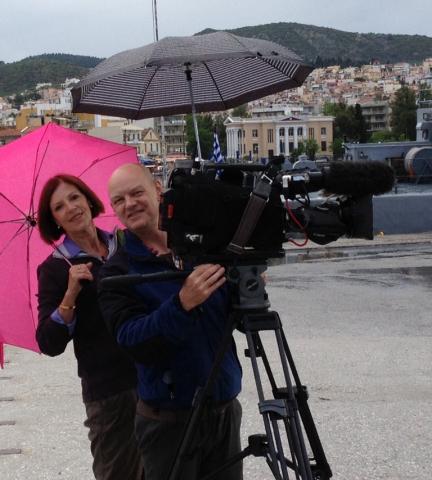
Sue filming in Greece
“People always ask what they can do to help and are amazed that there actually is something so simple and yet so life-changing – join the Anthony Nolan register, or get your sons and daughters to sign up.
“I was a young trainee journalist at ITN when Shirley and Anthony Nolan’s story was being reported in the 1970s, so I knew of and admired the work of the charity. But so many people don’t know the basics – they think it’s painful or they just say, ‘I’ve never been asked!
“It’s such a simple, small commitment for the donor, but what I appreciate now, more than ever, is that lives depend on someone’s decision to join the register. They really do.
Not just mine, but also the lives of thousands of other families like ours. For me, it’s a race against time to have the transplant while I still can.”
How you can help:
To join the Anthony Nolan register, you must be between 16 and 30 and in good health - and you can sign up by filling in a simple form.
We recruit people from 16–30 as they’re far more likely to donate their stem cells and save a life, and they have better outcomes for patients. They are also less likely to have health complications which could delay or prevent donation.
As it costs us £100 to recruit and tissue type each new person who joins the register, this also helps ensure that the people on the register are those most likely to save a life.
However once you're on the register, you'll stay on until the age of 60, and could be asked to donate at any time.
